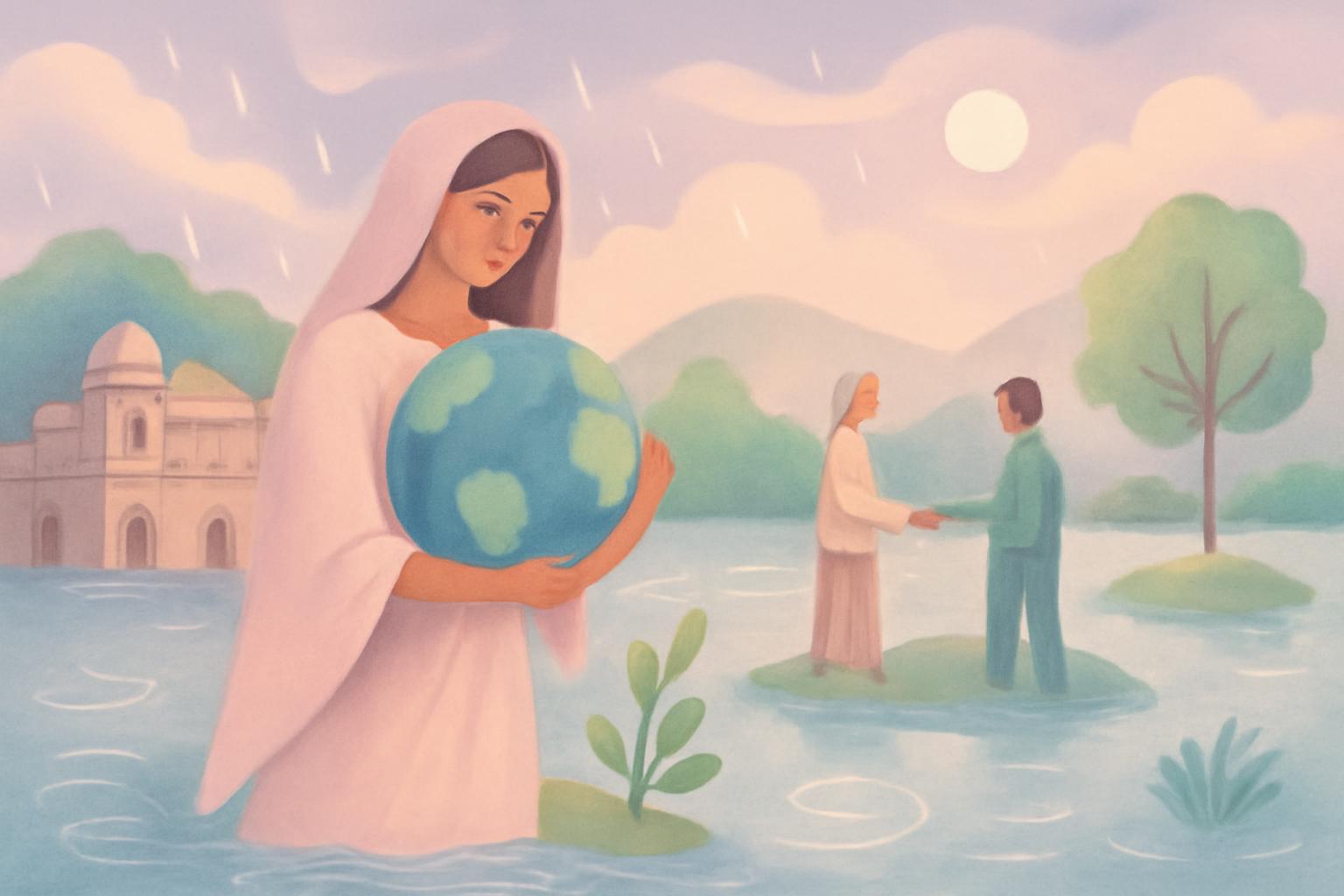The floods have swept across Punjab and nearby lands, turning fields into rivers and villages into islands of memory. Millions find themselves displaced, hundreds lost, and rescue teams racing by boat as more rain looms. The Chenab, Sutlej, and Ravi are currents of life and fear, carrying hopes to safety and grief to shore. The monsoon’s force has been sharpened by the season’s intensification, and the pattern echoes last year’s wounds—the land, once again, asking us to listen and to mend.
Mother Earth is telling a painful truth: the storm is not only a meteorological event but a consequence of a world that has asked her to bear the weight of reckless growth. The rivers we call resources have become classrooms in resilience, yet their floods reveal how we have altered wetlands, diverted wetlands’ memory, and silenced the ancient knowledge that knows how to dance with the rain. As the skies open, we see how climate disruption is not an abstract future but a tangible present—a teacher with a loud, urgent voice.
In this teaching, colonial histories whisper through every boundary we pretend to own. The land is not merely a stage for markets but a living archive of people’s labor, lives, and riverside ecosystems. The communities most dependent on these waters—often women, farmers, fishers, and indigenous and marginalized families—bear the heaviest burden when governance grows distant or brittle. The scars of empire linger in water governance, in inequitable access, and in the way relief sometimes arrives late or unevenly, as if Earth’s wounds were a matter of statistics rather than sacred kinship.
And there is the acid of a toxic capitalist system: profits measured in quarterly ticks while the air grows heavier, water becomes commodified, and public needs are outsourced to private hands that forget the sacred trust of stewardship. Debt, austerity, and the lure of quick gains render communities vulnerable to the next flood, the next drought, the next price spike. The cycle must be broken: reimagine an economy that values water as a right, land as a shared hearth, and energy as a common good; invest in climate-resilient, people-centered infrastructures; cancel unjust debts; and fund protections that keep rivers alive and communities safe.
Let us answer with healing, not blame; with solidarity, not surrender to despair. Lift up the most vulnerable with dignified aid and fair participation in decisions about waterways and flood protections. Restore wetlands and mangroves where they once stood, nurture agroecological farming that breathes with the monsoon, and build renewable, community-powered energy grids. Elevate women and frontline communities in planning and leadership, honor indigenous knowledge, and nourish the soil of hope with reverence for every seed and stream. Invest in early warning, robust public health, and climate finance that reaches the ground where it can heal first.
May we turn this sorrow into a river of repair. Let the rains recede with gratitude for the lessons learned, and let humanity’s response be a covenant with Mother Earth: to repair what we have harmed, to reimagine what we have taken, and to align our systems with the slow, steady wisdom of the living world. In listening to the rain, may we relearn how to nurture life, from the smallest seed to the greatest river, until both land and people rise renewed.
